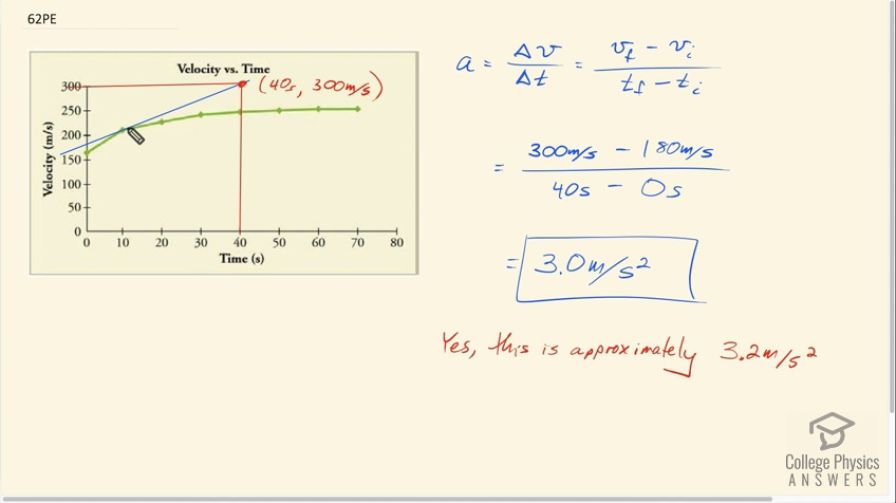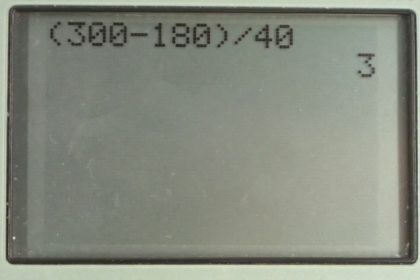Question
By taking the slope of the curve in Figure 2.63, verify that the acceleration is approximately at .
Final Answer
Yes, is approximately
Solution video
OpenStax College Physics, Chapter 2, Problem 62 (Problems & Exercises)

vote with a rating of
votes with an average rating of
.
Calculator Screenshots
Video Transcript
This is College Physics Answers with Shaun Dychko. To find the instantaneous acceleration at 10 seconds, we need to draw a tangent line for the velocity-time graph. So this tangent tells us what this slope is of the graph at this particular moment in time at this particular instant and that's why it has the name instantaneous velocity. So at 10 seconds we have this blue line is the tangent line and we have to find the slope of it. So we'll consider this point here at 40 seconds and it lines up with a velocity of about 300 meters per second and then it has a y-intercept at zero seconds of about 180 meters per seconds maybe and so we'll take the difference between those two velocities and then divide by the change in time to get the acceleration. So that's 300 meters per second here minus the 180 meters per second there and divide by 40 seconds minus 0 seconds giving us 3.0 meters per second squared and the question asks us to verify that the acceleration is 3.2 meters per second squared and we do expect this discrepancy; we have 0.0 in our calculation versus 0.2 in the question and that's normal when you are doing visual kinds of work here so we are gonna consider these to be roughly equivalent.
